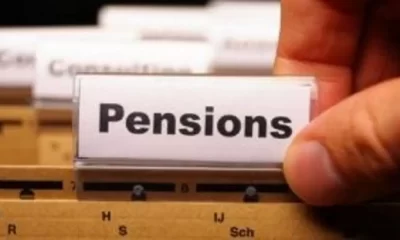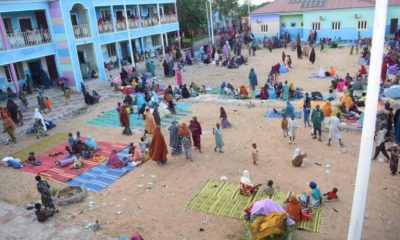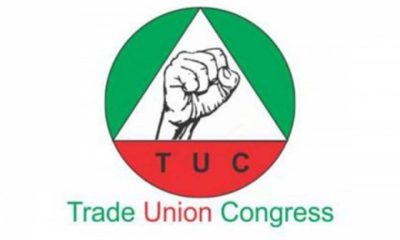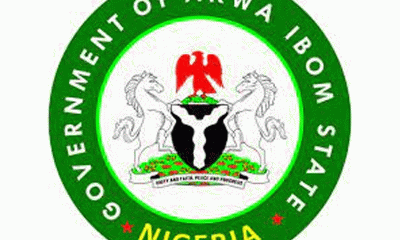NEWS
FG to Support Massive Investments in Lagos – Buhari

President Muhammadu Buhari on Tuesday pledged that the Federal Government would support massive investments in Lagos State to boost its economic potential as one of the world’s fastest growing megacities.
Buhari made the pledge in a virtual goodwill message during the Lagos Economic Summit (Ehingbeti) 2021 themed: ”For a Greater Lagos: Setting the Tone for the Next Decade”.
He said that his administration recognised Lagos as central to the economic fortunes of Nigeria and had in the last few years demonstrated commitment to supporting it to unleash its full socio-economic potential.
According to him, one of the significant ways in which the Federal Government’s support has manifested to Lagos State is in the special federal funding that was approved in 2020 in acknowledgement of the state being an epicentre of the coronavirus pandemic.
”The challenges of Lagos must therefore be very clearly seen as part of the challenges of Nigeria, and the Federal Government will support Lagos to overcome its challenges and to thrive socially and economically.
”The Presidential Infrastructure Development Fund is investing in the reconstruction of the Lagos-Ibadan Expressway, while the Apapa-Oshodi-Oworonshoki Expressway is a flagship project of our Road Infrastructure Tax Credit Scheme, also known as Executive Order 7 of 2019.
”It was also this administration which granted approval to the Lagos State Government to rebuild the Murtala Muhammed International Airport Road, a major road that links the busiest airport in sub-Saharan Africa to the continent’s fifth largest economy.
”The Federal Government is today completing the Standard Gauge Railway Line that will link Lagos to Ibadan in the first instance, and from there connect to Abuja and Kano, and bring ease and efficiency to what is Nigeria’s busiest transport corridor.
”Just last month, this new rail line achieved a milestone extension into the port complex in Apapa, setting the stage for a long overdue decongestion in that area,” he said.
Buhari said that his government had granted approval for the temporary transfer of the National Arts Theatre, an iconic federal asset on the Lagos landscape, to the Bankers’ Committee, which will invest in upgrading it and developing it into a world-class creative hub.
Buhari said that the enterprising young people in Lagos would be the biggest beneficiaries of the National Theatre, when fully upgraded into a world-class hub.
”Speaking of young people, we are aware of just how central they are to the Lagos economy, and to Nigeria as a whole.
”In the creative arts, culture and technology sectors, we are determined to continue to open up opportunities by which they can achieve their dreams and aspirations, as well as thrive in a safe, secure and increasingly prosperous country,” he said.
The president outlined the other initiatives of the Federal Government being implemented in Lagos to include the National Social Investment Programme, the Energising Economies Programme, the Economic Sustainability Plan, among others.
He commended the Lagos State Government for its collaboration with the Federal Government on human development programmes, adding that there was the need for understanding between the national and subnational governments.
”Let me also acknowledge and salute the fact that we have a forward-looking administration in Lagos that is focused on infrastructure and improving the ease of doing business and the overall quality of life of Lagosians.
”The theme of this year’s Lagos Economic Summit invites us all to share our aspirations for a megacity that boldly occupies its place in the global standing of Megacities.
”A Lagos that can keep up with its growing population in terms of housing, education, healthcare, security and jobs.
“A Lagos that is innovative and productive, and that ensures that its economic prosperity leaves no one behind,” Buhari said. (NAN)
NEWS
NAICOM constitutes 11-member recapitalization committee

By Tony Obiechina Abuja
The National Insurance Commission (NAICOM) has constituted a 2025 Recapitalization Committee, following President Bola Ahmed Tinubu’s assent to the Nigeria Insurance Industry Reform Act (NIIRA) 2025.
Chaired by Mrs.
Oluwatoyin Charles, Director of Supervision, the Committee’s primary responsibility is to oversee the implementation of the recapitalization program.This includes ensuring compliance with revised capital requirements and promoting transparency and integrity in sourcing and verifying capital inflows.
The Commissioner for Insurance, Mr. Olusegun Ayo Omosehin, emphasized the critical role of recapitalization in stabilizing the industry and contributing to Nigeria’s $1 trillion economy vision during the Committee’s inauguration in Abuja on Tuesday
He urged the 11-member Committee to approach their task with professionalism, diligence, and commitment to the common interest, assuring them of necessary support.
Committee’s terms of reference include to create a detailed plan for the Commission and the insurance industry; develop guidelines and circulars on recapitalization; recommend the composition of Minimum Capital Requirements, and incentives and Concession Identify incentives and concessions that may be obtained from other regulatory authorities.
The Committee will submit monthly progress reports to Management and provide quarterly updates to the Governing Board and stakeholders.
NAICOM is confident that the Committee will successfully deliver on its mandate, shaping the future of Nigeria’s insurance sector.
“The Committee’s success is vital to the industry’s stability and growth, and NAICOM looks forward to collaborating with all stakeholders to achieve this objective.
“With the NIIRA 2025, NAICOM aims to position the insurance industry for greater transparency, innovation, and global competitiveness, aligning with the Federal Government’s vision of achieving a $1 trillion economy”, the Commission added.
| ReplyReply allForwardAdd reaction |
NEWS
Again, ADC Tells EFCC to Stop Witch-hunting, Media Trial of Opposition Leaders
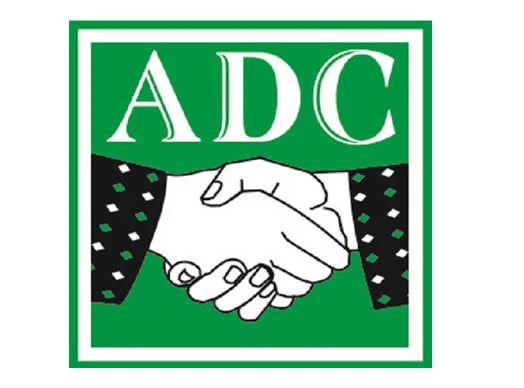
By Johnson Eyiangho, Abuja
Again, the African Democratic Congress (ADC) has come hard on the Economic and Financial Crimes Commission (EFCC), asking the commission to stop both the media trial and witch-hunting of opposition leaders.
The ADC accused EFCC of being used by the government to harass and intimidate opposition party leaders.
On Monday the commission detained one of the leaders of the coalition and former Governor of Sokoto State, Aminu Tambuwal, and subsequently invited Imo State Government officials to “urgently” provide information on the seven-month tenure of former Imo State Governor, Emeka Ihedioha.
With this, the party said that it has become crystal clear that the EFCC is out on a hatchet job — “a choreographed media trial targeted at bringing coalition leaders to disrepute.
”n a statement by its National Publicity Secretary, Mallam Bolaji Abdullahi, on Tuesday the ADC questioned why the EFCC had suddenly found “urgent” reason to investigate David Mark 10 years after leaving the Senate Presidency, Ihedioha more than five years after his brief tenure as governor, and Tambuwal two years after leaving office as Sokoto governor.
It said the pattern of ignoring APC stalwarts with fresher and well-documented cases, while targeting opposition figures with stale allegations, is proof of selective justice and an assault on political freedom.
Abdullahi said the detention of one of the Coalition leaders, former Sokoto State Governor, Senator Aminu Tambuwal, marked the start of the crackdown intended to intimidate key leaders of the opposition and discredit them through media trials.
“As shown in an EFCC correspondence currently circulating online, the Commission has now embarked on the investigation of another coalition chieftain, former Imo Governor, Emeka Ihedioha, with an “urgent” request to the officials to provide information related specifically to his brief seven months in office.
“Rt. Hon. Emeka Ihedioha, the former Deputy Speaker of the House of Representatives, served as Governor of Imo State for just seven months, from May 29, 2019, until the Supreme Court removed him on January 14, 2020 — a full 5 years and 7 months ago. We therefore wonder what makes investigating him suddenly “urgent” now.
“Most notably, the EFCC has now surreptitiously started excavating all the files from the ADC Chairman, Senator David Mark’s tenure as President of the Nigerian Senate. Let us remind Nigerians that our Party Chairman, Senator Mark, served as the Senate President for eight years, from June 6, 2007, to June 6, 2015 — making him the longest-serving Senate President in our history. He left office 10 years and two months ago. Three Senate Presidents after, the EFCC suddenly remembered that he was a Senate President,” the statement said.
Abdullahi said the ADC believed in adherence to the rule of law and due process, like all Nigerians, but questioned the curious timing, selective targets, and political motivations that now seem to define the EFCC’s actions.
According to him, a fight against corruption that begins and ends with the opposition is not justice — it is persecution. We have no doubts that this is witch-hunting; it is the APC government weaponising anti-corruption to do its political battle.
He said that having failed to stop the coalition, the jittery ruling party’s next move was to discredit its leaders by getting the EFCC to accuse them of looting the entire treasuries, noting that there were calculated media trials, which start and end with the accusation, the scandal, and the consequent lowering of public estimation. “It matters little whether there is a basis for these accusations — the game is the circus show.”
He said: *The questions write themselves: why now? Why these men? Why these timelines? If corruption truly has no statute of limitation, why are the EFCC’s files on APC’s own “big men,” many with fresher, documented cases, gathering dust in forgotten drawers? Why does the EFCC only discover “urgent” anti-corruption zeal when an opposition leader becomes a political threat?
“The truth is simple. These are not fresh investigations — they are political manoeuvres, cynical attempts to intimidate and weaken credible opposition voices ahead of the 2027 elections. The APC’s EFCC does not touch its own while they are in office or when they defect to the ruling party.
“Once a former governor crosses over, their files vanish like morning dew. Since Ifeanyi Okowa joined the APC, have Nigerians heard a single whisper from the EFCC about his cases? Yet opposition leaders are hounded with allegations from decades past without a shred of new evidence.”
He said what the EFCC is doing on behalf of the APC government is anti-democracy, adding that every time the EFCC is deployed as a political bulldog, it tramples on public trust and shreds the credibility of our justice system, reminding the APC that state institutions did not belong to it, but to Nigerians.
“We call on citizens to speak up, to resist, and to demand that the EFCC stop this witch-hunting in the interest of our democracy. Today, it is David Mark, Ihedioha, and Tambuwal. Tomorrow, it could be anyone who dares to hold this government accountable.”
| ReplyReply allForwardAdd reaction |
NEWS
FCTA Champions Livestock Development to Boost Food Security

By Laide Akinboade, Abuja
The Federal Capital Territory Administration has emphasized the strategic importance of strengthening livestock production, aimed at boosting food security, and promoting sustainable agricultural development across the nation.
FCT Minister of State, Dr.
Mariya Mahmoud made this known at the 2025 National Pasture Planting Day held at the Kawu Grazing Reserve in Bwari Area Council, Abuja.She explained that pasture planting is more than a farming activity, stressing that it serves as a key intervention to ensure the year-round availability of quality feed for livestock, reduce overgrazing and land degradation, and advance the transition to modern, settled livestock systems.
According to the minister, these efforts would not only increase productivity but also help prevent conflicts, foster peaceful coexistence, and protect the environment.
Describing the Kawu Grazing Reserve as a strategic agricultural asset within the Federal Capital Territory, Mahmoud noted that with enhanced pasture management, improved water infrastructure, and expanded veterinary services, the reserve has the potential to serve as a model for other states nationwide.
This, she said, would enhance milk and meat production, create employment opportunities, and support harmonious relations among rural communities.
The minister commended the Federal Ministry of Livestock Development for leading the initiative and acknowledged the dedication of farmers, herders, and development partners who continue to innovate within the sector.
Mahmoud also reaffirmed the FCT Administration’s commitment to supporting pasture development projects that secure the future of Nigeria’s livestock industry.
She described the planting event as a symbol of a shared vision for abundance, peace, and prosperity.
According to her, “The National Pasture Planting Day event underscores the President Bola Ahmed Tinubu’s proactive approach to overcoming challenges in the livestock sector, particularly the consistent availability of quality animal feed, positioning Nigeria toward a more modern, productive, and profitable livestock value chain.”
Also speaking, Minister of Livestock Development Alhaji Idi Mukhtar Maiha, noted that the event marks not just planting of seeds in the soil, but the sowing of a vision, the vision of renewed hope agenda for resuscitating great reserves, sustainable livestock development, environmental stewardship, peaceful pastoral practices and economic empowerment of millions of Nigerians who depend on livestock for their livelihoods.
Maiha revealed that the ministry is investing in release and registration of pasture varieties into the national seed system, noting that eight varieties have been released for the first time in 48 years.
The Minister assured that the present administration is fully committed to implementing the National Livestock Growth Association Strategy, which has been approved by National Economic Council and other policy frameworks that promote peace, productivity and prosperity in livestock.
He called for collaboration and cooperation within the community and between the community and the government to make the grazing reserves work.
| ReplyReply allForwardAdd reaction |



